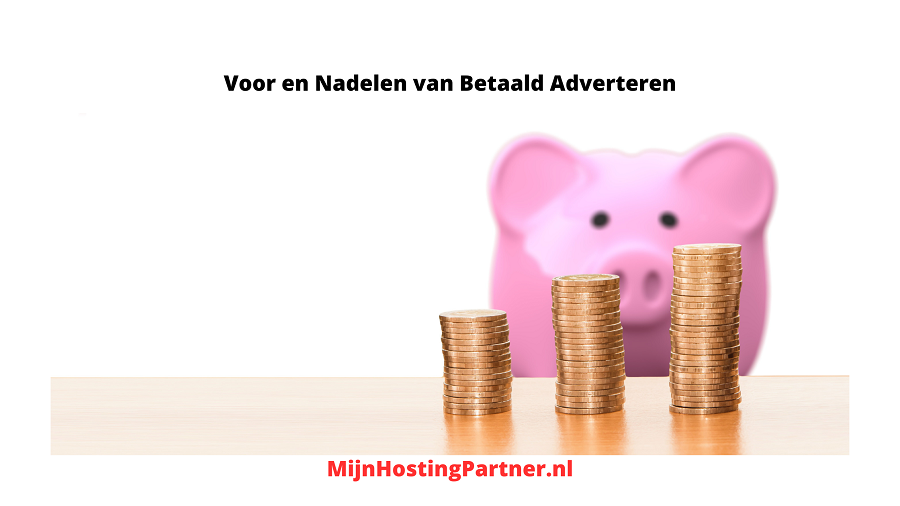Advantages and disadvantages of paid advertising
In today's rapidly changing digital landscape, you are as a company are constantly looking for effective ways to reach your target audience. Reach. One such method that has always been popular is paid Advertising. In this blog post, we'll take a closer look at the pros and cons of paid advertising in more detail to help you make informed decisions about this strategy in your marketing efforts.
Every entrepreneur, business and personal website owner is looking to increase traffic to their website. This can help you find clients, gain readers for your book, or generate leads for your next freelance project. Paid advertising is still considered a bit complicated by some clients, but with today's tools, it's easy to make it work for your website.
Advantages of paid advertising
One of the most valuable benefits of paid advertising is that it provides instant results as soon as your ad is approved and placed. You will see results the very next day or sometimes even the next minute. The same is difficult or impossible to achieve with other methods of advertising your website through Google. Paid advertising can be placed on search engines like Google as well as on social media channels and other websites. This allows you to quickly reach your target audience and potentially generate leads or sales.
Advertising platforms also offer advanced targeting options that allow you to define your audience based on demographics, interests, behaviors, and more. This ensures that your ads are displayed to those most likely to be interested in your product or service. This is often suggested by the advertising platform, but can be expanded upon.
One of the added benefits of paid advertising is measurability. You can track key metrics such as clicks, impressions, conversions, and return on investment (ROI), so you can assess the effectiveness of your campaigns and then, of course, decide if it was worth spending x amount of money. This is easier with paid advertising than with other methods because it can be pretty much in black and white. How much budget did you use and how many orders were placed. Of course, there are other factors like ease of use and many others that also play a role. But this is a bit clearer than other methods.
Paid advertising also gives you flexibility in budget allocation. You can set daily or overall budgets, adjust bids, and pause campaigns as needed. This level of control helps you manage your spending efficiently and also stop it immediately if things get too crazy for you.
Disadvantages of paid advertising
Of course, along with all the advantages, there are some disadvantages when you start using paid advertising. After all, no way is perfect or guarded against all eventualities. One of the most obvious disadvantages is that your costs may increase as you advertise your services. This is because you have to allocate more budget to create and place your ads. Here, you often pay per click of a usage or per impression. This is usually per thousand. Or per thousand. Hence the abbreviation CPM or cost per mille.
It also depends a lot on what industry you are in, how fast these costs can rise, lawyers or insurance companies have to pay gold to get their ads seen first. Such industries are indeed lucrative and decisions that the average user does not take lightly. If you want to buy a new pair of winter gloves, the advertising costs are very different than if you want to buy a new B2B financial software. It also has to do with how much competition there is in your industry. After all, in most cases, you're not the first to use paid advertising.
Another big (obvious) disadvantage of paid advertising is that it only delivers results as long as you pay for it. As soon as you stop advertising and stop budgeting for the cost, the traffic also disappears instantly like snow in the sun. Needless to say, this can hit you hard as a business. Unlike organic strategies that can lead to lasting visibility, the benefits of paid advertising diminish when the campaign ends.
As more businesses rely on paid advertising, competition for ad placements also increases. This can drive up costs and make it harder for smaller companies to stand out. In big industries, it's often not affordable for small businesses to compete among the big boys. So watch your budget and try to use it wisely.
Effective paid advertising also requires a learning curve. If you're just starting out, you won't get the most out of your ads right away, which means a certain amount of trial and error. Creating compelling ad copy, choosing the right keywords, and optimizing campaigns for maximum performance takes time and expertise.
Paid advertising is a double-edged sword, with with instant visibility and precise targeting, but requires careful budget management and optimization, it can be set and forgotten in one go. But You won't get the best bang for your buck. When you weigh the pros and cons, consider your business goals, budget and long-term strategy. Integrate paid advertising as part of a balanced marketing approach can can deliver valuable results, but a balanced mix of organic and and paid strategies may ultimately provide the best return on investment. Keep in mind That successful paid advertising is a dynamic process that requires constant monitoring, adjustments and a deep understanding of your target audience's preferences and behaviors of your target audience.
Do you also use paid advertising for your projects and website? Let us know!
